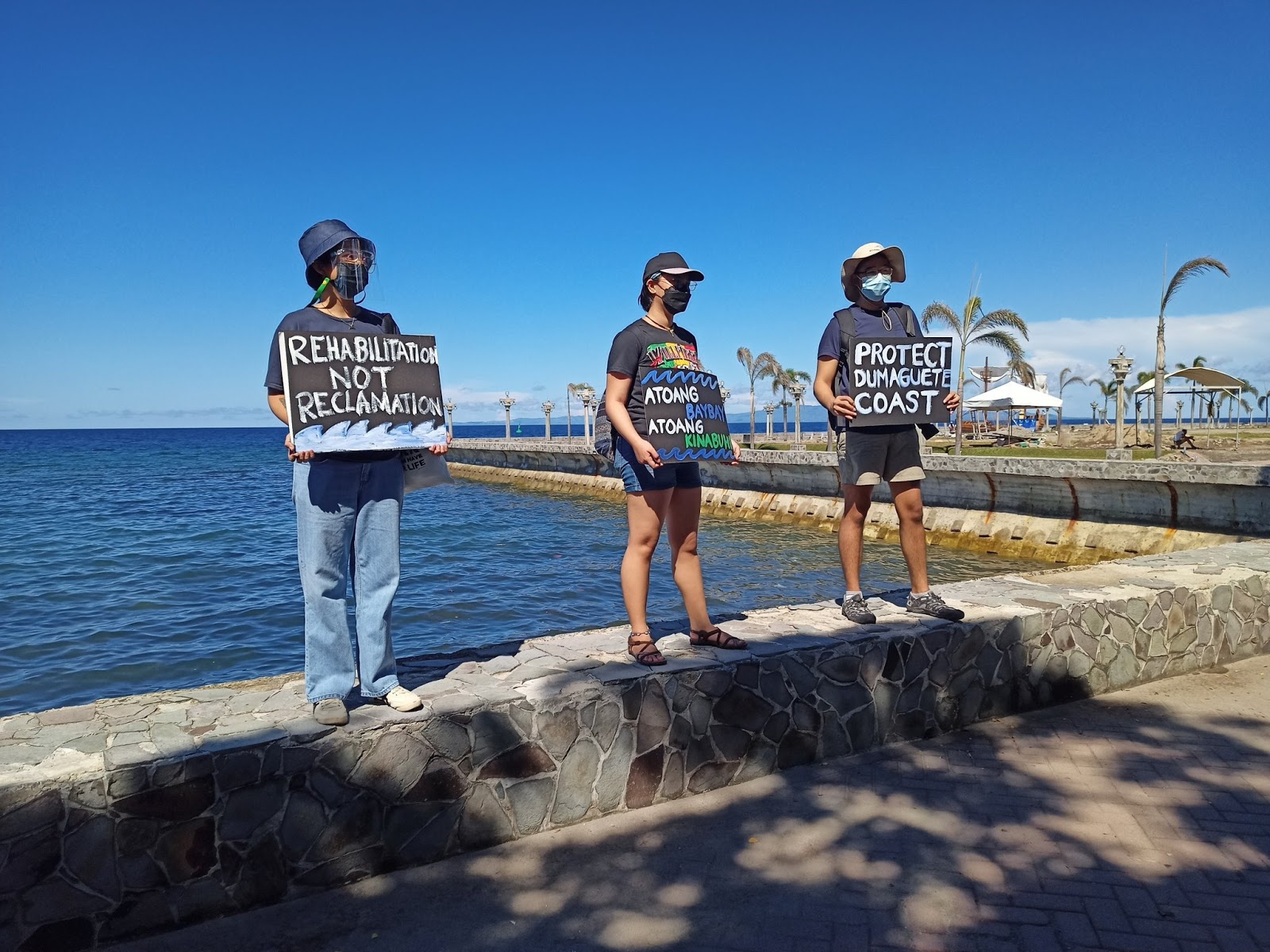
Dumagueteños expressed their opposition to the proposed P23-B reclamation project that will change the scenic and historic coastline of the ‘City of Gentle People.’ (Matthew Tabilog)
The P23-billion Dumaguete City reclamation project met stern opposition from various sectors after the city inked a joint venture agreement (JVA) with a private developer.
The city council passed on July 7 a resolution granting authority to Mayor Felipe Antonio Remollo to sign the JVA with contractor E.M. Cuerpo, Inc.
Opposition councilors tried but failed to block the passage of the resolution upholding the 174-hectare reclamation project dubbed as Dumaguete’s “smart city.”
City Councilor Agustin Miguel Perdices questioned the “swift” passage of the project without a prior public hearing, consultation, and studies on the possible environmental effects of reclamation.
“We cannot in good conscience, without having consulted a single Dumagueteño, give authority to the mayor,” said Perdices.
The resolution proponent, Councilor Michael Bandal, defended the multi-billion reclamation deal, saying that the JVA was not yet a public-private partnership (PPP) contract and that consultations would be done after the signing of the agreement.
“We are not yet making it a [PPP] ordinance until public hearings are done. All interested parties will be informed,” Bandal said. “This is only the first. To start the ball rolling.”
The council majority presented a detailed timeline dating to Nov. 25, 2019, when the developer submitted an unsolicited proposal, until it was awarded the project on June 23, 2021, after going through public bidding and complying with requirements of the city’s PPP selection committee.
Majority Councilor Lilani Ramon, quoting a portion of the JVA, said “the city shall not contribute money to the project,” highlighting what she described was one big benefit of the joint venture.
But opposition councilor and lawyer Joe Kenneth Arbas responded that the city was obligated to pay for and process the requirements of government agencies like the Philippine Reclamation Authority (PRA).
After a heated council meeting last week, Dumagueteños went online to express either support or opposition to the project, with some concerned citizens starting a petition against the proposal.
Among the first to publicly oppose the proposed project was national Scientist Angel Alcala, an alumnus of Silliman University and the university’s current and past presidents, Betty McCann and Ben Malayang III, a former Environment undersecretary.
In a letter, they argued that the project would “destroy” and “bury” the few remaining marine ecosystems that supported small-scale fishing in Dumaguete.
Silliman followed suit by starting its online petition, urging proponents to conduct public consultations.
“Sillimanians in Dumaguete and around the world who want public participation in government and development, LET YOUR OPPOSITION BE KNOWN,” the statement read.
The proposed “smart city” will include a coastal wastewater treatment facility, shoreline slope, wave protection, esplanade, a marina, a modern ferry port, an open area for sports facilities, a hospital, and a city administration hub.
Based on the JVA, 51% (88.74 hectares) of the 174-hectare proposed reclamation will be equally shared by the PRA and the city of Dumaguete. Ryan Sorote